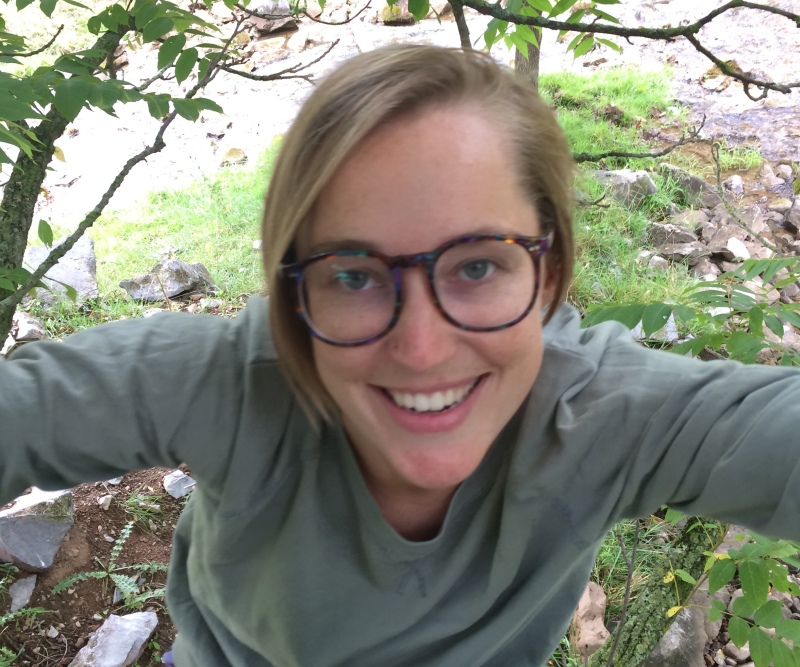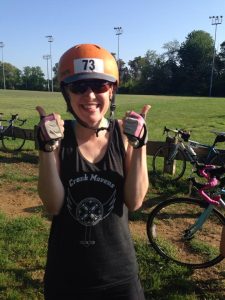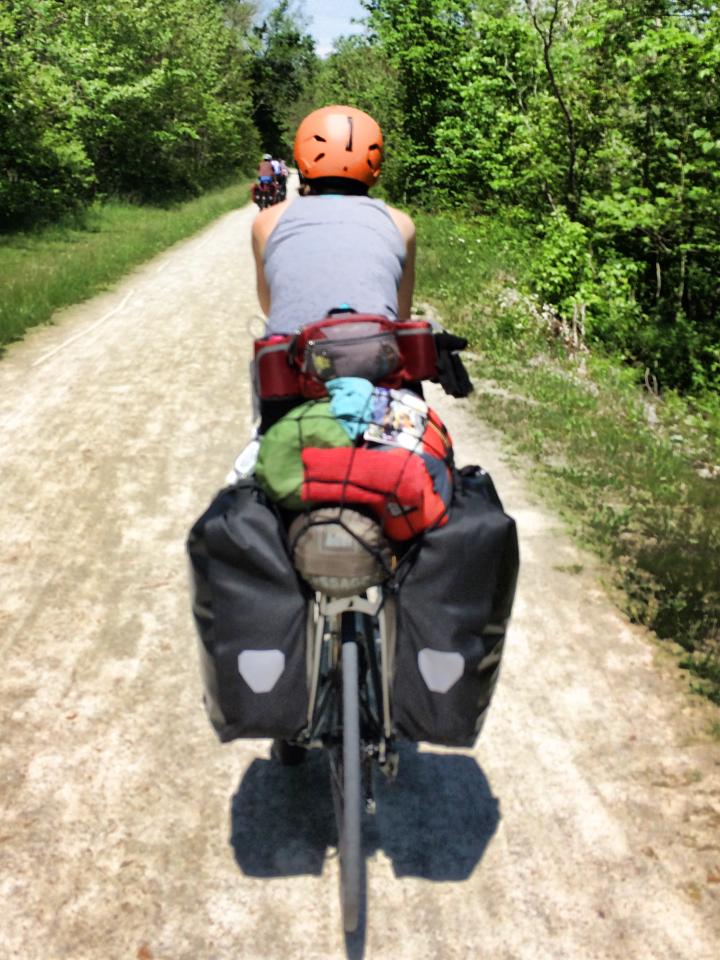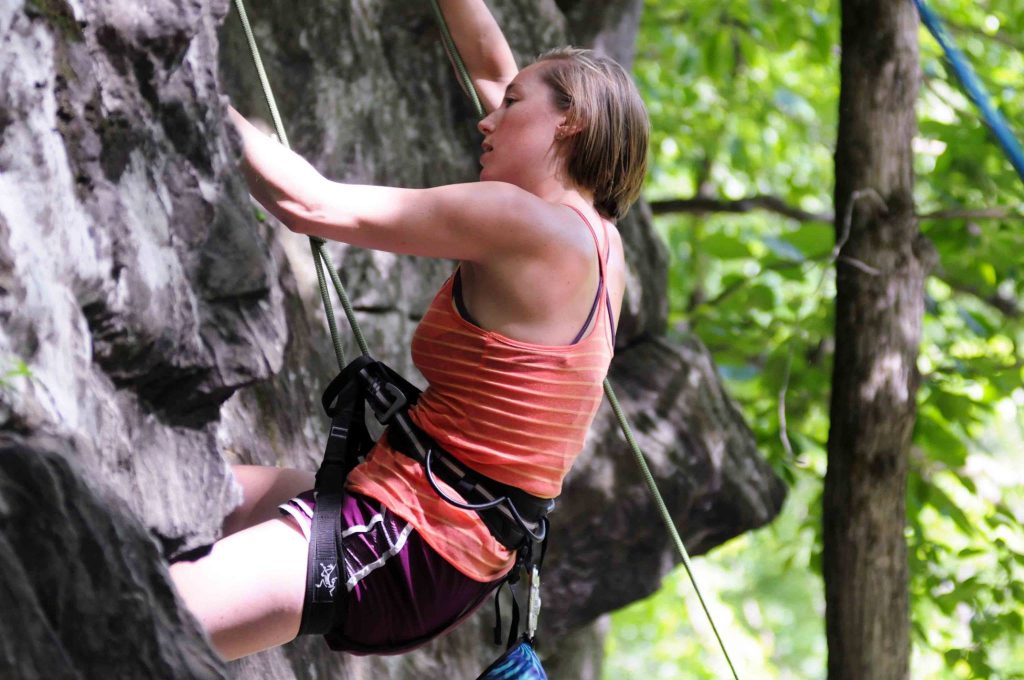
This week I’m interviewing Meghan Ames, a clinical research nutritionist at Johns Hopkins School of Medicine and a fellow member of the Nutrition Entrepreneurs Dietetics Practice Group (NEDPG). When I happened to see her job title, it piqued my interest and I wanted to learn more about what being a clinical research nutritionist is really like.
First Meghan, give us a little background on how you got into your current position.
After completing my BS at Miami University in 2010, I relocated to Baltimore to pursue a Master of Science in Public Health at Johns Hopkins University and complete my dietetic internship. This coordinated program provided an excellent foundation in both clinical nutrition and public health. In 2012 I took at position at Johns Hopkins School of Medicine as a clinical research nutritionist, where I conduct all different types of research studies. I also teach a nutrition course at the Johns Hopkins School of Nursing.
What motivated you to get into research? Is your current position something you’ve always imagined yourself doing or far from it?
During my graduate studies, I developed a strong respect for the importance of research in health policy and practice. I knew that having some research experience would make me a stronger public health practitioner, and getting some clinical exposure would grow my skills as a dietitian. My current role is the perfect place for me right now, as each and every day, I learn so much and continue to develop a vast skillset. I don’t think I’ll be in clinical research for forever, but I can’t quite tell you exactly what my next step will be.
Take us through a typical “day in the life.”
 I am lucky enough to be able to bike to and from work each day—often with the company of my boyfriend! I find the 6-mile commute to be a great way to get my muscles moving and clear my mind.
I am lucky enough to be able to bike to and from work each day—often with the company of my boyfriend! I find the 6-mile commute to be a great way to get my muscles moving and clear my mind.
Work varies from day to day. It can be spent counseling patients, testing out recipes in our metabolic kitchen, writing protocols, conducting literature searches, or meeting with investigators about new studies. I also get to work with a bunch of interns and students, as well as attend and give lectures on various topics. One thing I feel very fortunate about, however, is that when my work day ends, I can usually leave my work projects at the office.
Outside of my day job, I spend many evenings grading papers or writing lectures for my part-time teaching position. I also sit on the Nutrition Entrepreneurs Executive Committee and am a MD/DC State Networking Coordinator for Thirty and Under in Nutrition and Dietetics (TUND).
What is your favorite part of going to work every day?
I love the people at my office. That includes both my coworkers and patients. I enjoy hearing about their lives over lunch and learning of my patients’ successes during our counseling sessions. At Johns Hopkins I have the privilege of working with some of the most cutting edge investigators, and I learn so much from them every day!
What are some activities you enjoy doing in your free time?
I love being outside and doing pretty much anything outdoors. Weekends are filled with group bike rides, camping trips, hikes with friends, rock climbing, sailing, gardening, and cooking. I’m in a monthly supper club, where we’re always experimenting with a new culinary creation. Earlier this month, we harvested and pressed apples for cider, applesauce, and cobbler. This is my first season with a vegetable garden, and I’m learning so much about our plant foods! Additionally, being active is an important part of my lifestyle, and I’m always finding ways to fit physical activity into my daily hobbies.
What first got you interested in nutrition?
When I was in high school, I had a part-time job at a local gym, which I loved! I was fascinated by health and fitness, and how our health behaviors can affect our overall well-being and quality of life. Nutrition was a natural extension of this passion.
Do you follow any certain diet?
I don’t. I am thoughtful about what I eat and how I prepare my food, but I don’t follow any diet plan per say. What I do do is always try to get tons of fruits and veggies in. You can’t go wrong with that. I also tend to try to avoid fried foods, and I always check in with my physical hunger cues. Other than that, I try to go with the flow, and allow meals as a time to take nourishment and be present with friends and family.
What is one food you wouldn’t want to live without?
Cheese. That’s an easy one. I really love cheese.
You’re not the first dietitian that’s said that! Is there any food or nutrition related book or documentary that really changed the way you think about food?
Brian Wansink’s Mindless Eating book was pretty influential for me. I am fascinated by all the subtle influences that shape our food choices and this book was really eye opening for all the possible ways we can affect the health choices of others. I think this is a strong foundation for my work in nutrition and health behaviors.
What are your thoughts on organic foods? Do you feel strongly one way or another?
I wouldn’t say I have a strong position on the organic food debate, but I do think that we as a country need to be more cautious as to the substances we ingest. The amount of additives that are a part of our food system is troubling to me, and I would prefer to move towards a more “natural” food system.
Do you believe in calories in vs. calories out or is there more to it?
Oh, how I wish it were that easy! Unfortunately it is much more complex than that.
I work with many weight loss patients, and the calories in/calories out model is actually a great place to start with them. It is simple, easy to understand, and seems like a reasonable approach to losing weight. The most challenging part of any behavior change, however, is overcoming setbacks and plateaus, which are almost inevitable when someone is trying to lose weight. There is no question about it–some folks lose weight more easily and quickly than others. There are definitely hormonal factors, many of which we don’t understand very well. There are always opportunities to improve our health, however, and attempting to balance the calories we consume with those that we burn is an excellent start!
If you weren’t a dietitian, what would you be?
There are many other hats I wear in my current profession, and I think I could be any of them. Teacher, researcher, public health professional, counselor. These are all careers I could see myself pursuing, and I’m so lucky that I get to do a bit of them all!
What would you like to accomplish in the next 5 years?
I took an Entrepreneurship Bootcamp class earlier this year, and it really piqued my interest for the field of business. I’m fascinated by the start-up world and would love to break into it! To move towards this goal, over the next 5 years, I would like to take some more business classes, talk to entrepreneurs, and develop my own skills and vision towards starting my own business.


